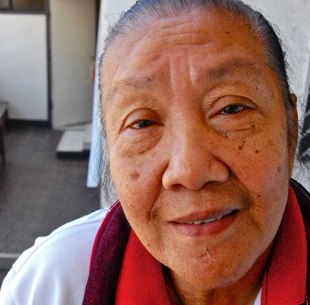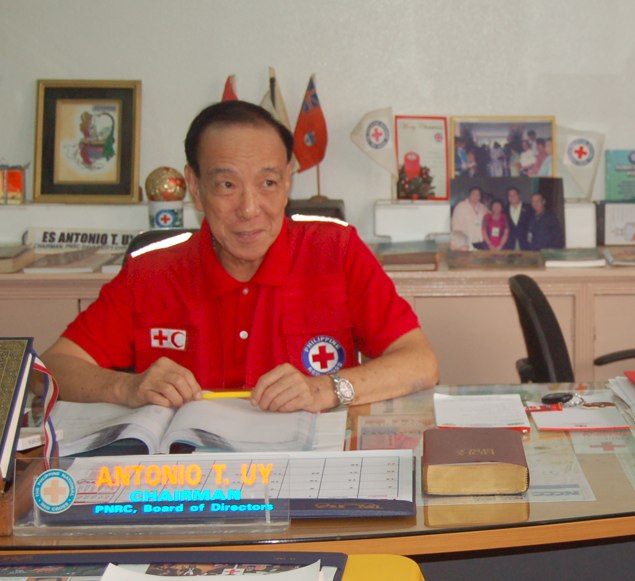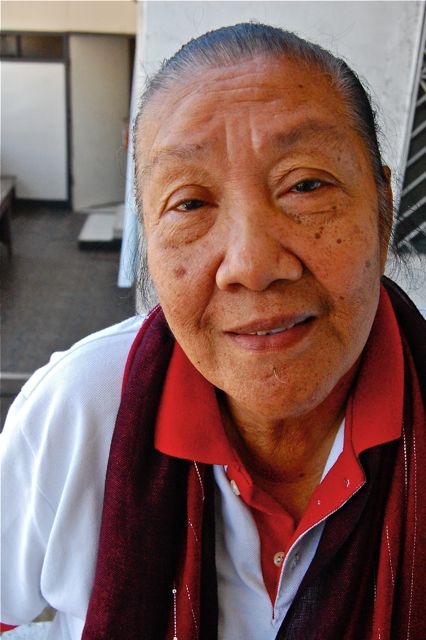(In January 2011, and thanks to the ICRC Young Reporter Competition, I had the fortune of visiting the ICRC mission in the Philippines to report on the situation of youth. This post is part of a series I wrote on this visit. Click here to see the rest of the posts.)
The world I move in is obsessed with youth-flavored anything. Youth activism, youth voices, youth culture. I don’t for a moment doubt that there are lots of intuitive explanations that show why this is a natural step for certain societies, and I don’t think that this is on principle a bad thing. After all, young people have traditionally been a minority in decision-making (and still are in many contexts).
But I think this does become a problem, like all the minority struggles that culminate in their own glorification, when our collective perceptions work so hard to focus on this blind spot that they suddenly forget that there are other things to be taken into consideration. And I think the unlucky ones in the process are the ones that were traditionally favored when youngsters weren’t: the older people.
I think that, in focusing on All Things Youth, we have lost appreciation for things that come with age – experience, wrinkles, (paradoxically) new perspectives. There seldom is praise for those who have spectacular achievements in their repertoire, but were born before 1980. And this post is meant to praise the achievements of two outstanding individuals that I met during my visit to the ICRC in the Philippines.
No; they’re not 13-year-old social entrepreneurs with a start-up in their CV… but, 60 years ago, they were (sort of). And they’ve stuck around long enough to keep rocking the change-making world in their communities.
Please meet Mr. Antonio T. Uy, Chairman of the PNRC Board of Directors, and Ms. Bai Fatima, Chairperson of the PRC-Cotabato Chapter – life-long Philippine Red Cross workers, inspirational change-makers, and true rockstars in the eyes of the PRC Youth they train.
Mr. Uy joined the Philippine Red Cross in 1956 because, as the good scout he was, he needed to learn the basics of first aid. He’s never left the institution since that day, but his retirement is close, he says.
He looks back on what he’s achieved for the PRC with pride, and he’s, in my opinion, completely entitled to it. One of his favorite achievements is the construction of the current office of the PRC Davao City Chapter, which provides an adequate space for all PRC Youth activities, blood donation, and public services. He participated throughout the entire process.
Even though he is the Chairman of the PNRC Board of Directors, he speaks fondly of his work with PRC Youth. He says he is proud of having been the first person to suggest that a spot in the Board were given automatically to a representative of the PRC Youth, given their contribution to the institution (remember 75% of the PRC workforce comes from PRC Youth volunteers alone!), and the need to consider youth in decision-making.
His favorite memory from his last 55 years of service, he said, belongs to the moment he stepped into one of the warehouses where volunteers were preparing a distribution of emergency goods that was to be done in a community that was being hit by natural disaster. He says that he looked around, getting ready to give instructions, and then realized that he had to give none.
The young volunteers were already organized, and executing the tasks that they themselves assigned. The youth he trained didn’t need him anymore to respond to an emergency in an efficient way. And that, he says, was the best moment in his entire career.
Ms. Bai Fatima does not talk of her retirement yet. For her, a lot is to be done still; and I think this one fact speaks a lot about the personality of this woman who, well into her seventies, is one of the main pillars of the PRC Chapter she works for.
Having lived for her entire life in a region that has been affected by conflict since long before she was born, she has had to endure the pain that’s come with every loss of a family member, a friend. She has no shortage of stories of this kind. And that has made her a strong woman that does not crush when many other men and women would.
She doesn’t hesitate in her speech. She speaks clearly, always directly, with eloquence. She can speak about events, persons, any topic put in her hands, without stopping for a pause. Speech flows out of her mouth with security. Her expression is firm most of the time, but she doesn’t hesitate to smile or laugh when the occasion requires it.
Bai Fatima’s work for the PRC takes many shapes. As the Chairperson of her Chapter, she is involved directly in the big decision-making about the work of the institution in her community; she is in touch with beneficiaries of PRC and ICRC programs, enabling the necessary communication; she also is a mentor to the Red Cross youth that volunteer their services in the same office.
When we interviewed the PRC Youth that work with her to find out about their own lives, she was a recurring topic. A girl with a background in the medical field said that one of the most important things she personally takes away from her experience in the PRC was taught to her by Bai Fatima herself: she learned to be tough in the face of difficulty, to have her head ready when she needed to deal directly with people who were in a situation of stress, to not give up after having a bad experience.
I am eternally grateful for having had the chance to add these two true role-models to my rockstars list.
Photo credits: © ICRC/Dalumpines, Joey Sem; García Montes, Mariel
The here shown material has been produced with the authorization of The International Committee of the Red Cross (ICRC). However, it does not necessarily reflect the ICRC’s views, and the ICRC may not be held liable for any content here shown.


